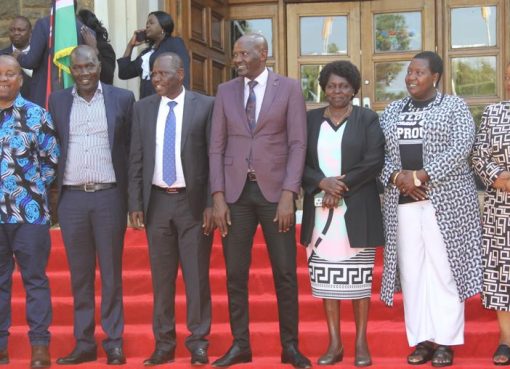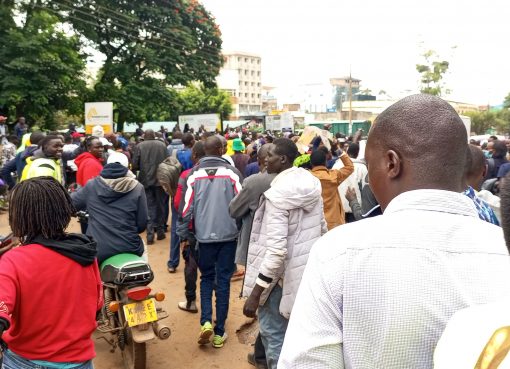Small scale traders at the Namanga border town, Kajiado County will be issued with free movement permits for up to 15 kilometres either side of the town, to ease their business activities.
The resolution was reached after a joint meeting of officials from the national government, county government and One Stop Border Post (OSBP) officials among others, with the aim of allowing free trade within the border.
“We have set aside all permit payment fees for our small scale traders in this area so that they can be able to move their goods easily,” Kajiado Central Deputy County Commissioner Charles Wambugu said, adding that, “We are determined to unite our people irrespective of their origin since even the locals here have inter-married, making all of us one people, boundaries notwithstanding.”
In a meeting co-chaired by the deputy county commissioner and his Tanzanian counterpart, the Longido District Commissioner James Mwaisumbe, the officials vowed to ensure that traders, travelers at the border town of Namanga get to benefit from OSBP services in line with the spirit of cooperation between East African Community.
While chairing a joint border meeting with the top management of both Kenya and Tanzania border post, the pair expressed confidence that President Uhuru Kenyatta and John Magufuli’s aspirations of uniting citizens of both countries will be realized.
“As government officials we are committed to ensuring that the presidential directives are strictly adhered to by ensuring the OSBP is running efficiently,” Longido DC told Kenyan News Agency during a brief interview at the Namanga border. “The consultative meetings between the government officials from both countries will help address the gaps and inefficiencies still being experienced at the border,” he noted.
Mwaisumbe reiterated that the free trade at the border is expected to build lasting peace and improve the economic status within the border towns.
However, Elizabeth Waki Kinyanjui, a clearing agent’s representative complained over the endless delays by KRA as the biggest menace that the border facility faces.
Waki expressed dissatisfaction in dealing with KRA personnel that their businesses are encountering losses as the taxman has the habit of detaining cargo for several days.
“We are yet to enjoy the efficiency in clearing of goods at the border post since we have nothing to smile about yet as clearing agents,” she said. “Since 2010 our trucks have to take 10-30 days at the border post awaiting clearance by KRA officials which is too costly for us in the region,” Kinyanjui told the meeting.
The delay at the border was blamed on the department of Kenya Bureau of Standards (KEBS) procedures of verifying samples of the products.
Wambugu said many of the Lorries parked long at the border because of the delays by KEBS which has to collect samples and send to Nairobi for verification, where it sometimes takes up to 3 weeks.
He promised to take up the matter with KEBS management to ensure skilled personnel is posted at the border to operate their machinery to ease clearance of goods.
The government officials vowed to intensify war on drugs trafficking along the porous border with the Tanzanian government already deploying anti-narcotic officers with sniffer dogs for the purpose.
“We have already deployed around six dogs at the facility since the beginning of the year to enable curb this menace of drug trafficking and already we have intelligence that some people are transporting bhang with donkeys and handcarts but it is just a matter of time, we will arrest them,” Mwaisumbe told KNA.
The officials resolved to be meeting every three months to review progress and address challenges that arise from time to time.
Namanga OSBP was launched on 1st December 2018 by both Kenyan President Uhuru Kenyatta and Tanzanian President John Maguguli.
The duo had expressed optimism to the small scale traders that the border post will increase support to do business across the border unhindered.
During the launch, Magufuli during noted that poor cross border trade facilitation which is exhibited through unnecessary delays on the road, at ports and border posts therefore contributing to an increase in the cost of doing business was a major hindrance to economic cooperation between countries in Africa.
“According to research done by the World Bank, such challenges account for 65 per cent increase in the cost of doing business in Africa. This makes the cost of doing business in our continent higher than other continents. For example, it is three times more than doing business in South America and five times more than in Asia,” Magufuli had lamented.
By Nelly Kosgey and Albert Lemomo





